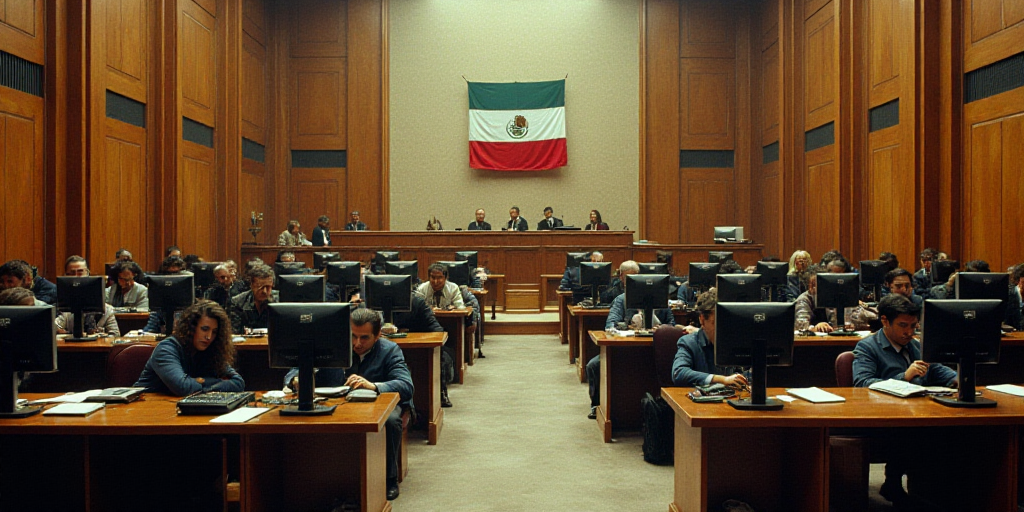Overview of the Current Legislative Landscape in Mexico
During the LXVI legislature, over 170 labor reform proposals have been presented to modify the Federal Labor Law (LFT) or Article 123 of the Constitution. However, a mere 2.2% of these projects have been approved by the Congress of the Union.
Approved Reforms
Among the approved reforms are constitutional amendments to improve the salaries of policemen, teachers, and healthcare personnel, acknowledging gender wage gaps, the Silla Law, and regulation of digital platform work.
Pending Proposals
Several other proposals remain unapproved, including reducing working hours, extending vacation days, creating new leaves, increasing maternity and paternity leave, and raising Christmas bonuses. These are still in the proposal phase.
Reasons for Low Approval Rate
Experts attribute the low approval rate to a lack of legislative expertise and the presentation of impractical initiatives. Jorge Sales Boyoli, a partner at Sales Boyoli, points out the absence of internal consensus on reforms and the legislative process driven by media attention.
Recent Trends in Labor Proposals
According to El Economista’s Labor Monitor, nearly 50 proposals were introduced in April alone across both chambers of the Congress of the Union. These include creating marriage leave or officially recognizing sisifemia.
Carlos Ferran Martínez, a partner at Ferran Martínez Abogados, acknowledges the positive aspect of labor legislation changes but notes that recent proposals reflect an extreme position, diverging from the context when the Federal Labor Law lacked adjustments. He also highlights the use of labor proposals for political rather than practical purposes.
Key Questions and Answers
- Why are labor reform approvals so low? The low approval rate is due to a lack of legislative expertise and the presentation of impractical initiatives, along with the absence of internal consensus on reforms and a media-driven legislative process.
- What are some examples of approved reforms? Approved reforms include constitutional amendments to improve salaries of policemen, teachers, and healthcare personnel; acknowledging gender wage gaps; the Silla Law; and regulation of digital platform work.
- What are some pending labor proposals? Pending proposals include reducing working hours, extending vacation days, creating new leaves, increasing maternity and paternity leave, and raising Christmas bonuses.
- Why are labor proposals being used for political purposes? Labor proposals are being used for political gain due to the ease of discussing potential implications on social media and digital platforms, often without considering their legislative or financial viability.
The Way Forward
Experts agree that while the legislature continues to modify the Federal Labor Law, several aspects related to workers’ dignity need further debate. Additionally, Mexico’s international commitments must be strengthened.
Carlos Ferran Martínez emphasizes that labor benefits should not be implemented through decrees but rather through increased collective bargaining and employer-employee dialogue. He stresses the necessity of discussing issues linked to workplace dignity.
Jorge Sales Boyoli concurs, noting that topics like universal social security or unemployment insurance are crucial but currently underrepresented in the labor agenda. He also points out that, despite not being part of local legislation, Mexico’s international human rights obligations must be upheld by the state.
Both experts agree that while specific labor reforms may seem appealing, the focus should be on reinforcing workplace inspection rather than mandating employers to provide basic amenities like chairs or water, which reflects the quality of Mexican employers. Instead, existing tools for monitoring these aspects should be made more rigorous.






